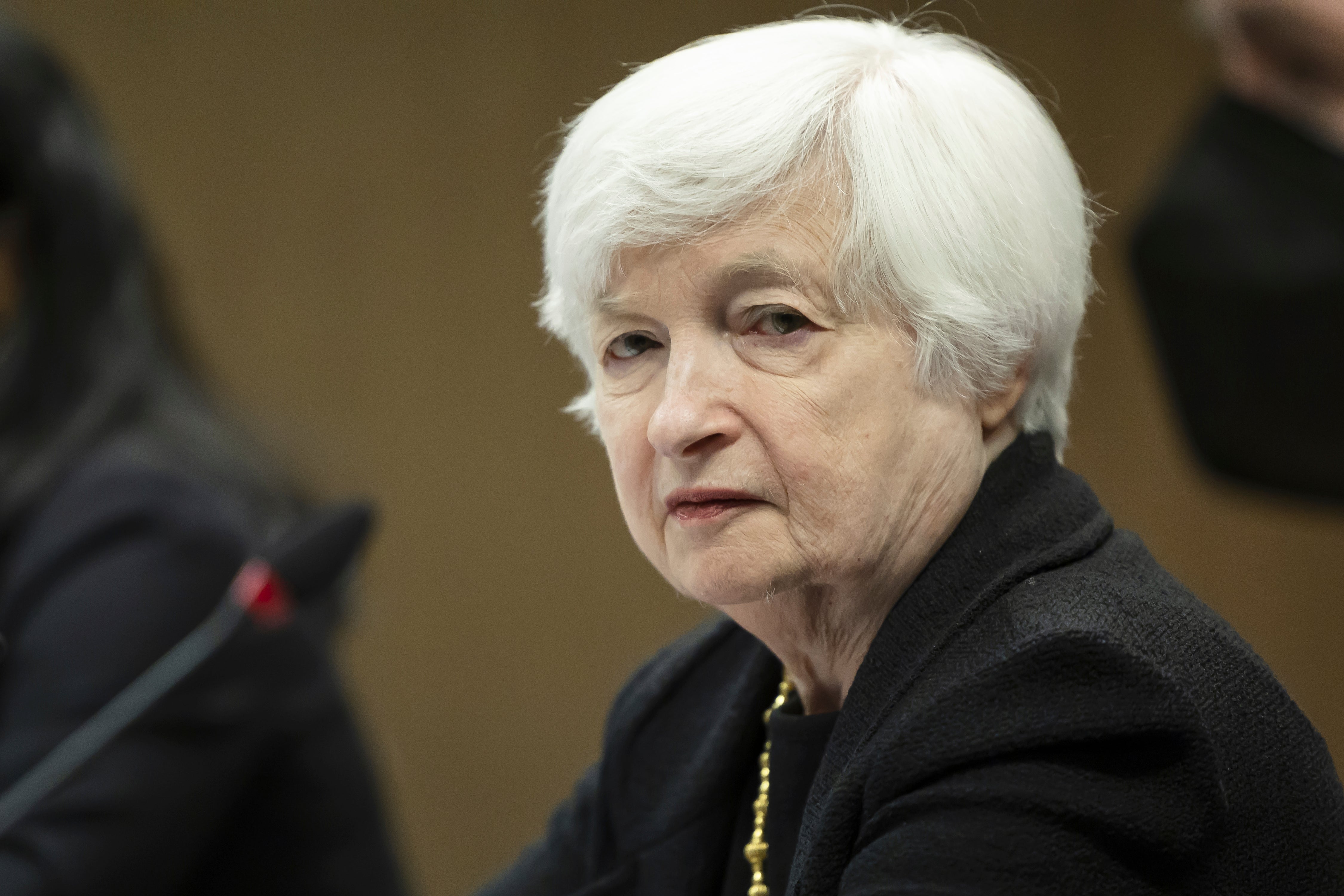Yellen kickstarts Biden administration visits to Africa
The Biden administration’s big push to engage more with Africa is underway as Treasury Secretary Janet Yellen begins a 10-day visit aimed at promoting all the economic possibilities that lie between the U.S. and the world’s second-largest continent

Your support helps us to tell the story
From reproductive rights to climate change to Big Tech, The Independent is on the ground when the story is developing. Whether it's investigating the financials of Elon Musk's pro-Trump PAC or producing our latest documentary, 'The A Word', which shines a light on the American women fighting for reproductive rights, we know how important it is to parse out the facts from the messaging.
At such a critical moment in US history, we need reporters on the ground. Your donation allows us to keep sending journalists to speak to both sides of the story.
The Independent is trusted by Americans across the entire political spectrum. And unlike many other quality news outlets, we choose not to lock Americans out of our reporting and analysis with paywalls. We believe quality journalism should be available to everyone, paid for by those who can afford it.
Your support makes all the difference.The Biden administration's big push to engage more with Africa is underway as Treasury Secretary Janet Yellen begins a 10-day visit aimed at promoting all the economic possibilities that lie between the U.S. and the world’s second-largest continent.
Yellen is the first administration official to visit the continent since President Joe Biden announced during the U.S.-Africa Leaders’ Summit in December that he plans to make a trip to the region this year, as will Vice President Kamala Harris, first lady Jill Biden and a number of Cabinet secretaries.
Yellen's travels will take her from a business incubator for entrepreneurs in Senegal to agricultural sites in Zambia to a wildlife park and Ford assembly plant in South Africa, each stop designed to highlight areas of U.S.-African cooperation. She'll also connect with plenty of top African officials along the way.
Yellen arrived in Dakar, Senegal, late Wednesday and was starting up her public schedule on Friday.
At the business incubator on Friday, Yellen plans to stress that Africa, with its growing middle class, “will shape the trajectory of the world economy over the next century," offering important opportunities for the U.S.
“This can be a win-win for our economies,” Yellen plans to say, according to excerpts of her prepared remarks released Thursday.
Continental Africa will make up one quarter of the world’s population by 2050 and is rich in natural resources.
China's increasing economic entrenchment in Africa is also motivating the U.S. to deepen ties.
Before arriving in Africa, Yellen met with her Chinese counterpart, Liu He, in Switzerland on Wednesday as part of an effort to ease tensions with the Asian superpower.
Her job on the more than 13,000-mile (20,000-kilometer) circuit from Washington to Zurich, Dakar, Lusaka, Pretoria and back home is to engage with African leaders and showcase investment opportunities for American firms.
“A rising share of working-age people presents an opportunity for the continent," Yellen plans to say. “More workers can drive growth, generating more resources to increase investment, and making educating the young and supporting the vulnerable easier.”
She plans to note that Africa's growing middle class also presents an opportunity for the U.S. “It means a bigger market for products. And it means more investment opportunities for American firms that are already creating jobs on the continent,” she plans to say.
The White House strategy on Sub-Saharan Africa raises concerns about China's involvement in the region, stating that Beijing “sees the region as an important arena to challenge the rules-based international order, advance its own narrow commercial and geopolitical interests, undermine transparency and openness, and weaken U.S. relations with African peoples and governments.”
Yellen's stop in Zambia will serve to highlight its huge debt to China, its biggest creditor. Zambia is renegotiating the nearly $6 billion debt, and Yellen has been critical of China’s failure to make progress on negotiations. She said in December that it is imperative to find a solution to Zambia's debt problem “as quickly as possible.”
A senior Treasury official, speaking on condition of anonymity to discuss private talks, told reporters that Yellen discussed Zambia’s debt with Liu on Wednesday and tried to gauge China's reasons for its hesitancy on rescheduling the debt.
Joseph Siegle, who leads the Africa Center for Strategic Studies’ research program, said the scope of Yellen's visit was far broader than the matter of China's influence.
“From an emerging market standpoint there is a lot going on there — with its resources and growth and a large African diaspora in the U.S. Arguably the U.S. has not paid enough attention to Africa with the rigor that's warranted," he said. "I think the significance of this trip is trying to rectify there hasn't been enough high-level engagement on the part of the U.S. in Africa.”
He added that African nations don't want to be put in position where they have to choose between China and the U.S., but would rather “maximize" their choices and build long-term partnerships.
Africa holds 30% of the critical minerals that power the modern world, including 40% of the world’s gold, up to 90% of its chromium and platinum, and the largest reserves of cobalt, diamonds, platinum and uranium in the world, according to the United Nations Environment Programme.
Rama Yade, senior director of the Atlantic Council’s Africa Center, wrote this week that the Biden administration may be believed when it says it doesn't seek to turn Africa into a sphere of great-power competition.
“Africa will not have to choose between potential partners,” Yade said. “If it can make up lost ground and build on what it started with the December summit, the United States and Africa will prosper.".